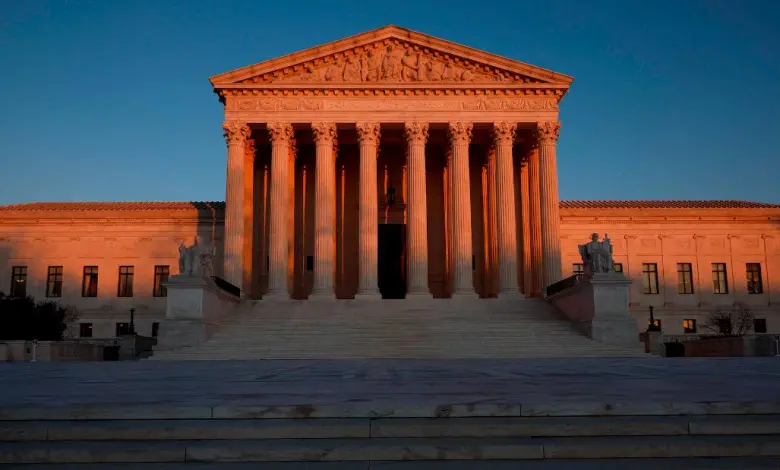
Although West Virginia urged the Supreme Court to allow the contentious statute to be enforced, a transgender student-athlete who is contesting the state’s anti-transsportation ban is now pleading with the court not to become involved in the case.
Republican West Virginia Attorney General Patrick Morrisey filed an emergency motion with the court earlier this month, requesting that it reverse a lower court ruling so that it could enact the ban. The law, which was signed in 2021, prohibits transgender girls and women from playing sports in public schools.
The 12-year-old Becky Pepper-Jackson who is challenging the law claimed in court documents submitted on Monday that the state’s argument that he was damaged by the appeals court’s injunction against the law was unfounded.In short, the motion falls nowhere near the kind of urgent and compelling circumstances required for an extraordinary appeal from this court,” they wrote. “There is no basis for this court to ban BPJ from the field, where she has spent her entire middle school career and where her presence does no harm to anyone.”
Pepper-Jackson was able to compete on her middle school’s cross-country and track teams due to the lower court injunction“Retaining the Fourth Circle injunction would not only result in BPJ losing her ‘second family,’ but she would also lose all the other benefits and life lessons that participation in school physical education undeniably brings,” they wrote.
“This as-applied challenge is about a kid who just wants to play with her friends on her middle school team without harming anyone like she has been doing for over a year and a half. As the district court acknowledged, it is in the public interest that ‘all children who wish to participate in athletics should have a real opportunity to do so,’” the filing reads.
Morrisey, a Republican, defended the law in a statement to CNN later Monday, saying, “Our case is simple: it’s about protecting women’s and girls’ opportunities in sport.”
The ban “should protect the integrity of girls’ and women’s sports in both secondary and post-secondary public schools,” the attorney general said, ignoring the fact that the law excludes certain girls and women.






